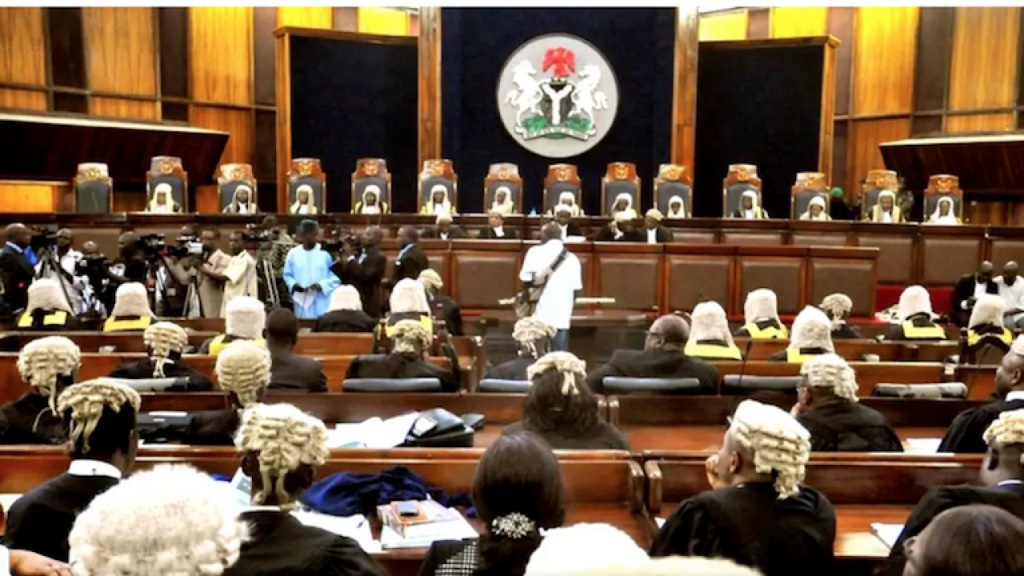Nigeria’s judicial system is widely recognized for its shortcomings, which have contributed to its failure to rank among the top 10 best judicial systems in Africa.
Despite constitutional provisions guaranteeing judicial independence and fair trials, the system grapples with fundamental challenges that compromise its efficiency, public trust, and overall effectiveness.
Analyzing recent data and expert assessments offers insight into why Nigeria’s judiciary lags behind regional peers.
A key source illuminating these issues is the 2023-2024 World Justice Project (WJP) Rule of Law Index, which ranks Nigeria 120th out of 142 countries globally and 23rd out of 34 in Sub-Saharan Africa.
This ranking reflects Nigeria’s struggles across multiple indicators essential to the health of any judicial system, ranging from constraints on government power to effective civil and criminal justice delivery.
One underlying problem is the pervasive lack of adherence to the rule of law, which manifests in inconsistent enforcement and weak institutional checks on governmental authority.
Nigeria’s best performance among the WJP’s eight measured factors is in constraints on government powers (ranking 85th globally).
However, this still signals deficient separation of powers and undue executive influence over judicial processes.
Judiciary independence often comes under pressure, undermining public confidence and judicial impartiality.
Another significant obstacle is endemic corruption, with Nigeria ranking 121st in absence of corruption globally and 23rd regionally.
Corruption contaminates all judicial layers, influencing case outcomes, delaying proceedings, and deterring fair adjudication.
This systemic issue robs the judiciary of legitimacy, breeds injustice, and fuels perceptions that verdicts can be bought or politically manipulated.
Poor order and security conditions compound the problems.
Nigeria is ranked as the second-worst country in Sub-Saharan Africa on this indicator, which directly affects judicial operations and access to justice.
Widespread insecurity from conflicts, insurgency, and crime undermines the enforcement of judicial decisions, disrupts legal processes, and limits citizens’ ability to seek redress.
Courtrooms may face threats, and legal personnel operate in challenging environments, all of which degrade judicial effectiveness.
The prolonged delays and inefficiencies in civil and criminal justice further explain Nigeria’s judicial underperformance.
According to the WJP, Nigeria ranks 100th globally in civil justice and 86th in criminal justice.
The system is characterized by case backlogs, procedural bottlenecks, and inadequate infrastructure.
Consequently, justice is often inaccessible, slow, or denied, undermining the principle that justice delayed is justice denied.
This inefficiency frustrates litigants, increases litigation costs, and diminishes the deterrent effect of legal rulings.
Nigeria also struggles with weak regulatory enforcement (119th globally), signifying an inability to properly implement laws and judicial decisions, which weakens the judiciary’s authority and societal impact.
Even when courts issue rulings, poor enforcement mechanisms allow violations to persist unchecked, eroding the rule of law.
Beyond these specific indicators, Nigeria’s judiciary suffers from structural and resource deficiencies.
The judiciary is often underfunded and understaffed, limiting its capacity to handle high case volumes and invest in technology or training.
These constraints increase trial times and reduce procedural quality.
Moreover, judicial appointments and promotions can be politically influenced, undermining meritocracy and further affecting impartiality.
Public perception issues also overshadow the judiciary.
A combination of corruption, inefficiency, and perceived political manipulation has eroded citizen trust.
Without confidence in judicial fairness, the justice system loses its social legitimacy and citizens may resort to alternative dispute resolution mechanisms or extrajudicial means.
This can perpetuate lawlessness.
Furthermore, fundamental rights protections within the judicial framework have weakened.
The WJP notes that Nigeria ranks 116th globally in fundamental rights adherence, suggesting challenges in safeguarding individual liberties through legal processes.
This impacts the judiciary’s role as a defender of constitutional rights.
Comparatively, many African countries have made notable strides in judicial reforms and anti-corruption measures.
Rwanda leads Sub-Saharan Africa in rule of law rankings (41st globally).
They are followed by Namibia and Mauritius, nations that have prioritized transparent, independent, and effective judicial systems supported by good governance.
Nigeria’s judiciary, by contrast, is hampered by the combined weight of these long-standing systemic problems.
In summary, Nigeria’s exclusion from the top African judiciary rankings is attributable to multifaceted issues:
- persistent corruption;
- weak enforcement of laws;
- executive interference undermining judicial independence;
- insecurity that hampers judicial operations; prolonged case delays;
- structural underfunding; and,
- erosion of fundamental rights.
Addressing these challenges requires deep systemic reforms and strengthening institutional independence.
It also requires boosting judicial capacity, improving transparency, enhancing security for judicial actors, and enforcing accountability mechanisms.
All these should be to restore public trust and ensure justice is delivered fairly, swiftly, and effectively across Nigeria.
Without sustained commitment to these reforms, Nigeria’s judicial system will continue to lag behind regional benchmarks and struggle to fulfill its constitutional mandate.
The top 10 African Countries with the best Judicial systems include:
- Cape Verde
- Botswana
- South Africa
- Tunisia
- Rwanda
- Morocco
- Kenya
- Mauritius
- Ghana
- Namibia



